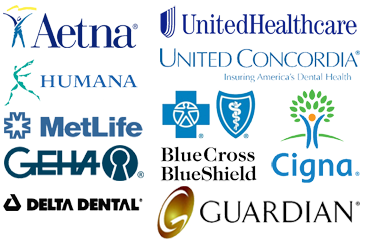Summary: Employers historically provided dental benefits through insurance plans because these plans were inexpensive and readily available. Dental insurance plans were always a bad deal for individuals who purchase their own insurance. Now, with the improvement in quality and acceptance of dental discount plans, even the insurance companies recognize that both businesses and individuals get better value bypassing insurance.
Insurance works best when the financial risks are large, few people in the population will incur the costs. For example, fire insurance effectively spreads the cost of a potential catastrophic loss over a large population so that the cost per covered member is minimal. As more people incur claims, the ration of premium expense to potential benefits narrows and insurance becomes less attractive to the covered members.
Dental insurance was relatively inexpensive for businesses until the late 1990s, so businesses widely used this insurance to supplement their employee health benefit plans. Then as premiums rose dramatically over the past decade, most employers turned to consumer-driven health plans that provide dental benefits without insurance, especially Health Reimbursement Arrangements (HRA). Few insurance companies offer fully insured dental benefit plans.
Dental insurance plans for individuals and families are expensive. They include long waiting periods for major services and recurring deductibles. Pre-existing conditions may be excluded. The insurance amount is minimal, usually $1000 or $1500. Limits on the maximum benefit amounts for expensive procedures leave large bills uncovered. The amount paid in premiums is mathematically certain to be significantly more than the amount available in benefits. In short, it is almost impossible for most people to actually benefit from dental insurance. Dentists are not obligated to accept a specific fee nor are they required to submit the claim or accept assignment of the insurance benefit.
Dental discount plans, in contrast, are very inexpensive, offer a 30 day money-back guarantee to allow members to test the plan, have no exclusions for pre-existing conditions, and make all benefits available immediately without a waiting period. All dentists listed in the network have agreed to accept the pre-negotiated fee schedule and all payment arrangements may be made between the patient and the dentist.
OnlineAdviser service formerly supported enrollment in dental insurance plans. Some older publications and Web sites may still refer to this service. However, we do not know of any dental insurance plans that meet the eligibility requirements for OnlineAdviser enrollment support (one of the basic requirements is that they represent a good value to members) and therefore we no longer provide enrollment support for dental insurance plans.
Some states specifically prohibit a comparison between insurance and non-insurance benefit plans in the sales process to avoid confusion and unethical sales practices. This is not an offer to sell or promote any insurance or discount plan, but rather a general comparison between the two strategies as specifically related to the decision to enroll in dental insurance or a dental discount plan.
More information on low cost insurance plans is available at Freedom Benefits insurance exchange. More information on insured and uninsured dental benefit plans for businesses is available atwww.FreedomBenefits.org. More information on dental discount plans is available atwww.ehealthdiscountplan.com.
[contact-form-7 id=”4556″ title=”Boilerplate Contact”]


Leave a Reply